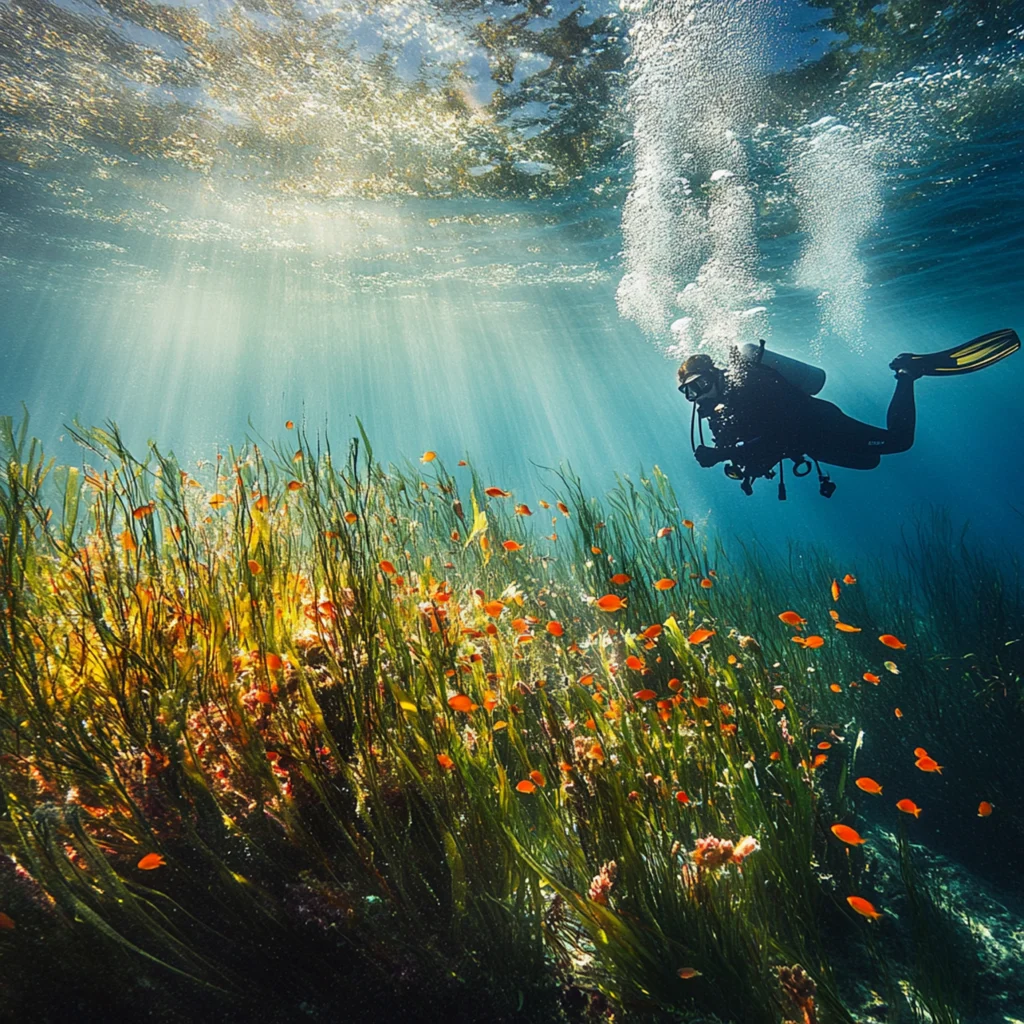
The diving industry has increased recently, with millions worldwide engaging in scuba diving and snorkeling as recreational activities. However, the industry’s growth has also raised concerns about the environmental impact of diving and tourism on marine ecosystems. In response, there has been a growing trend towards Eco-Friendly diving practices and sustainable tourism in the diving industry.
Eco-Friendly Diving Practices
- Responsible diving: Many Divers are now adopting responsible diving practices, such as avoiding touching or standing on coral reefs, not feeding fish, and not removing marine life from the water.
- Marine Protected Areas: Many countries are establishing marine protected areas to protect vulnerable marine ecosystems. Divers are encouraged to respect these areas and not engage in activities that may harm aquatic life.
- Sustainable Dive Operators: Some dive operators are adopting sustainable practices, such as reducing their carbon footprint using Eco-Friendly equipment and supporting local conservation efforts.
- Eco-Certification: Organizations like the International Marine Conservation Congress and the Green Fins Initiative have established Eco-Certification programs for dive operators, recognizing their commitment to sustainable practices.
Sustainable Tourism
- Community-Based Tourism: Many dive operators are now engaging in community-based tourism, which involves working closely with local communities to develop sustainable tourism practices.
- Conservation Efforts: Some dive operators incorporate conservation efforts into their tourism, such as beach cleanups or reef restoration projects.
- Educational Programs: Many dive operators offer educational programs for divers focusing on marine conservation and sustainability.
- Sustainable Accommodations: Some dive resorts and hotels adopt sustainable practices, such as using renewable energy sources, reducing waste, and implementing recycling programs.
Benefits of Eco-Friendly Diving Practices and Sustainable Tourism
- Protection of Marine Ecosystems: Eco-friendly diving practices and sustainable tourism help to protect marine Ecosystems and conserve biodiversity.
- Support for Local Communities: Sustainable tourism can provide economic benefits to local communities, which can help to promote conservation efforts.
- Enhanced Diving Experience: Eco-friendly diving practices and sustainable tourism can improve divers’ overall diving experience by providing a more authentic and immersive experience.
- Credibility and Reputation: Dive operators that adopt Eco-Friendly practices and sustainable tourism can enhance their credibility and reputation among divers.
Challenges of Eco-Friendly Diving Practices
- Cost: Implementing Eco-Friendly practices and sustainable tourism can be costly for dive operators.
- Regulation: There may be a need for more regulation and enforcement of Eco-Friendly practices and sustainable tourism in some areas.
- Public Awareness: There may be a need for more public awareness about the importance of Eco-Friendly diving practices and sustainable tourism.
- Competition: Some dive operators may not prioritize Eco-Friendly practices and sustainable tourism due to competition from other operators.
Eco-friendly Diving Practices and the Rise of Sustainable Tourism
The rise of eco-friendly diving practices and sustainable tourism in diving is a positive trend that can help protect marine ecosystems and promote conservation efforts. However, some challenges must be addressed, including cost, regulation, public awareness, and competition. By adopting eco-friendly practices and promoting sustainable tourism, dive operators can improve their credibility and reputation among divers while contributing to the long-term health of marine ecosystems. Companies such as By The Shore SCUBA Instruction keep up with SCUBA innovations and charter group SCUBA trips throughout the year.
Sources-
-https://en.wikipedia.org/wiki/Marine_conservation
-https://en.wikipedia.org/wiki/International_Union_for_Conservation_of_Nature
-https://en.wikipedia.org/wiki/Marine_Conservation_Institute
-https://en.wikipedia.org/wiki/Green_Fins
-https://www.worldwildlife.org/
-https://en.wikipedia.org/wiki/Sustainable_tourism
-https://marine-conservation.org/
-Ibrahem, U., Ibrahem, U., Abdelfatah, H., Kedwany, D., AlMankory, A., Diab, I., & Abdul Kader, R. (2023). The Drivers of Change for Future Learning: How Teachers Were Taught in the COVID-19 Crisis and What Will Come Next? Sustainability, 15(20), 14766
